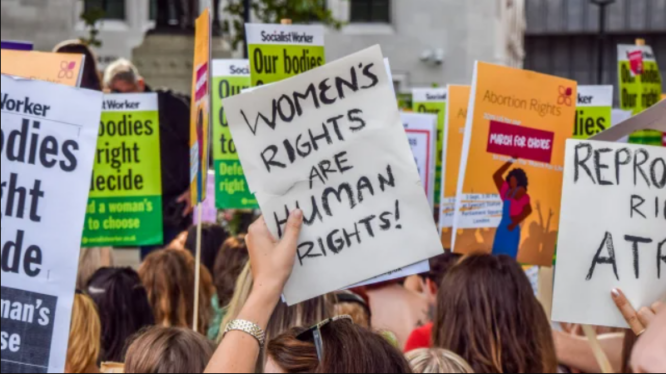Covid probe should examine impact on reproductive and sexual health services for women 2023

An MP told that the Covid probe should examine how the epidemic affected women’s sexual and reproductive health services.
Dame Diana Johnson, co-chair of the All-Party Parliamentary Group on Sexual and Reproductive Health, told i that not investigating sexual and reproductive health services would create a “gap” in the probe.
Before the COVID-19 epidemic, the APPG investigated contraceptive availability.
“I think it would be useful for the Covid inquiry to look at this as one strand of their work,” said Labour MP for Hull North and Home Affairs Select Committee head Dame Diana. Because sexual reproductive health access was obviously a problem, they should also look at pregnancy, parenting, and newborns.
“You only have to look at some of the figures at the moment around gonorrhea and syphilis and everything else which are going through the roof and it may well be that that can be traced back to people not being able to access clinics and things during Covid and also beyond.”
A 44-year-old woman was sentenced this week for using abortion medication after the UK’s 10-week restriction.

After lying about her pregnancy weeks in a remote appointment, Carla Foster, a mother of three, ended her pregnancy with drugs during the first Covid lockdown.
The stillborn infant was 32–34 weeks old.
Ms Foster’s defense countered the prosecution’s claim that her internet searches demonstrated preparation by citing the Covid lockup and reduced face-to-face appointments.
The APPG on Sexual and Reproductive Health promotes early medical abortion at home via charity MSI Reproductive Choices.
In August 2022, the Abortion Act was amended to allow eligible women in the first 10 weeks of pregnancy (9 weeks and 6 days) to access pills for early medical abortion through a teleconsultation and take both pills at home, making the “pills by post” procedure permanent.
“The wellbeing and safety of women requiring abortion services is paramount,” stated then-public health minister Maggie Throup. These initiatives will provide women more choice in how and where they get abortion services while collecting sufficient data to guarantee their safety.
MSI Reproductive Choices welcomed the inquiry of how Covid affects women’s reproductive healthcare engagement.
The charity’s UK head of external affairs, Louise McCudden, said: “The option of taking both pills at home has been vital for anyone with difficulties attending a clinic in person for all sorts of reasons, whether due to health or mobility issues, transport difficulties, or because they live with people who would harm them if they knew they were having an abortion, such as an abusive partner.
“When home use was legal, the sale of abortion pills from unregulated providers online went down, because those who couldn’t safely get to a clinic in person now have a legal route to NHS-funded abortion care with a trusted provider.”

Telemedicine also pleases Dame Diana. She said there has been some success in helping women and girls get services, but many hurdles remain.
“Some positive steps forward, but clearly I think there are still big problems,”
Dame Diana warned that “unwanted pregnancies,” late health diagnosis, and antibiotic-resistant sexually transmitted infections might result from increasing access hurdles.
“The COVID-19 pandemic impacted a lot of people from an equalities perspective, and it had a disproportionate impact on women in many ways,” Ms. McCudden said. We want the investigation to consider women’s health, including reproductive healthcare.
I was not informed if the Covid-19 probe will focus on reproductive and sexual healthcare.
Module Three, which examines pandemic effects on healthcare, may address both topics.
Module Three includes pregnancy, parenting, and infant charities and organizations but no independent sexual health services.
The inquiry’s investigations and module scopes are not yet released.
